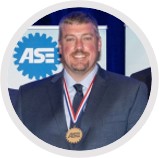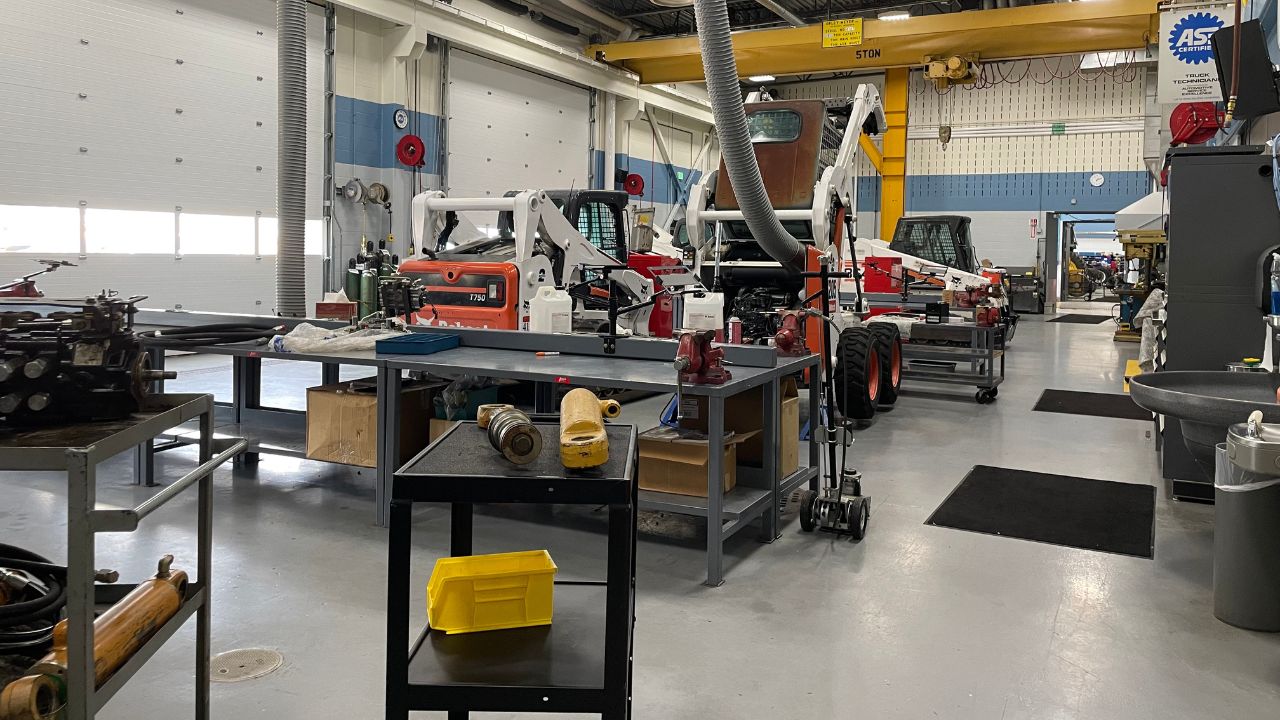Automotive and diesel instructors and students across the country are getting ready to head back to school, and many have already started!
Oftentimes, shops and dealerships want to support their local schools, but aren’t sure where to start. As they’re getting their classrooms and shops prepared, we asked 15 automotive and diesel instructors what shops and dealerships can do to best support their local high schools and post-secondary schools.
Here’s what they had to say.
How Shops & Dealerships Can Help Local Auto & Diesel Programs
“Stop by the shop or hit us up on a zoom call once a month to hear what the students have done this month. This lets them know that someone cares, and they may just have a chance to get a job.”

Leroy Goodwin
Automotive Instructor, Paulding High School
“Local dealerships can significantly enhance post-secondary collision repair programs by providing students with access to the latest vehicle technologies and repair techniques. By partnering with these educational institutions, dealerships can offer internships and hands-on training opportunities, bridging the gap between theoretical knowledge and real-world application. Additionally, dealerships can donate vehicles, tools, and equipment, ensuring students are well-prepared to enter the workforce with the skills required by modern repair facilities.”

Doug Irish
Department Chair Collision Repair & Refinish Technology, Fayetteville Technical Community College
“Shops and dealerships can best support auto/diesel/tech ed programs at their local schools by being present. Attend advisory meetings, and take time to be a presence in the school. Meet the students. Be an ambassador for the transportation industry.
Be a champion for the students. Realize that even if they are taking classes, they do not know everything. You will still need to mentor them in your shops. Throwing them into a flat rate position will most likely stress them out, and they will leave the industry. Having them work with a senior tech, even for a short time, increases the likelihood the student will succeed.”

William Fell
Automotive Technology Instructor, Gateway Technical College
“Offer part-time work and internships while students are in school. Show up and be an active part of the advisory board. Offer resources to schools so they can prepare the student for the field (i.e., OEM software, factory training, etc.).”

Blane Schloo
Diesel Instructor/Lead Instructor, Ventura College
“When a shop supports an automotive program at their local school, it’s much more about an investment into their own workforce. If a student could work part time as an apprentice while they’re in the program instead of waiting to be offered a job when they’re complete, that would amplify their learning and experience. If a student can work while they’re learning, they’ll learn more, develop their confidence faster, and turn more hours for the shop.”

Josh Simons
Instructor/Academic Program Director, Greenville Technical College
“Show up once a month. Committing your employees’ time to the program will get you results. Donations of money always help, but this is last on my list.”

Miles Tokheim
Technology and Engineering Teacher, Vel Phillips Memorial High School
“There are the age-old things that can’t be overlooked like being a participating member of the advisory board and allowing students to shadow and intern. But the biggest help to me is when they give their time to the students. Recently, I have asked my dealers for help in the world of programming and flashing modules. They have taken the time to bring their equipment and walk us through the process. Taking that time out of their day is huge for us.”

Jack Stow
Automotive Instructor, North Kansas City Schools Automotive Technology
“Local shops and dealerships can help support tech ed programs by continuing with the work-based learning program that allows students to shadow technicians in a live environment.”

James Foster
Auto Tech Instructor, DCMO BOCES
“The secret sauce has not changed. Become a visible part of a local automotive high school program. Students flock to those who they see as someone concerned about their education. Be here and participate.”

Randy Golding
Automotive Instructor, West-MEC
“Shops need to understand they don’t have to put money into the program. It is just nice to have them come in, tour the school, and say some encouraging words to the students. A lot of these students are attempting to get a fresh start after making a mistake or getting out of the military. Encouraging words from an employer to students is amazing. At my previous college, the first term students are required to do mock interviews. This is another great thing shops can do. It doesn’t cost anything but some time. Approach your local programs and ask them what they need. Join a PAC committee. This is a time to be involved and help with direction of the program of choice.”

Ed Weeks
Lead Instructor, Midwest Diesel Tech Academy
“The best way to support local CTE programs is to explain how the industry is moving in their particular shop. Help them by providing feedback to the students on what they are looking for from an employee. Also, if they are able, work with the programs to get newer materials to give the students hands-on experience with new technology so they can be best prepared for a long career in the field.”

Patrick Myers
Automotive Technologies Instructor, Erie County Technical School
“Shops and dealerships can support local programs by being involved with them. They can have someone come and speak to the students, give tours of their shops, and dealers can bring a truck, car, or piece of equipment for the students to look at. Almost all of my placements have been from companies that came to the school and established a connection with the students. Students need to see an endgame to all of the work they are putting in, and shops and dealerships can play a huge role in that.”

Tyson Sontag
Diesel Technology Instructor, Springdale Public Schools
“Students would strongly benefit if they heard a success story from any technician that began their career in a similar school. Most shops/dealers have valuable learning materials sitting in their scrap parts piles. Shops/dealers are always welcome to reach out to program instructors about ideas and opportunities they may have. Instructors need just as much help training the next generation of students as employers need help finding a new generation of experienced technicians… Let’s work together.”

Joshua Mauldin
Diesel Instructor, Spartanburg Community College
“Commitment! Commitment will look different for each business and person. Trade teachers are extremely overloaded and often may not even know exactly how you can help them, but committing time, resources, skills, and support is the best way to create a strong program that is in tune with the industry locally. Don’t just talk the talk; walk the walk! Anything you can take off the instructor’s workload will allow them more time to focus on the students, which will have positive short-term and long-term effects.”

Tracey Hicks
Automotive Technology Instructor, Frederick County Public Schools
“One important way they can support is not the typical way everyone thinks about supporting these CTE programs. When looking at secondary school districts, dealerships and local shops need to attend their local school board meetings or better yet, have representation on local school boards. With state budgets being tighter and tighter each year towards education, these school districts need to find creative ways to conserve funding. Many times, cutting programs or consolidating CTE programs to stretch the almighty dollar. We need to advocate at these local level school board meetings for our industry, and let everyone know the importance of keeping CTE programs active in local school districts.”

Tom Wozniak
Diesel Technology Instructor, Madison Area College




